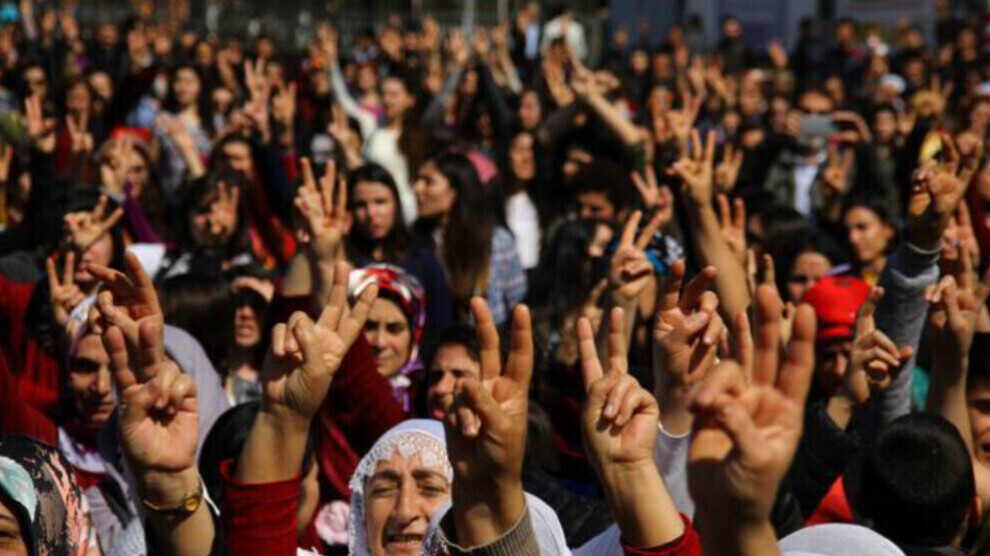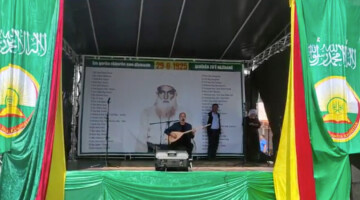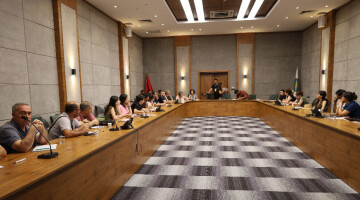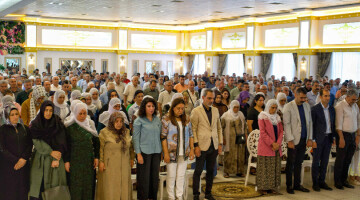It has long been known that the German government has always stood firmly by Turkey's side. Turkey's geostrategic position as a NATO bulwark at the gateway to the Middle East and as a guardian of refugee flows that should not reach Europe is too exposed. The sales markets - especially for armaments - and the interests of the more than 7,000 German companies active in Turkey are too important. Nor should the Turkish community be forgotten; according to statistics, the majority are loyal Erdogan supporters, not a few of whom will soon be allowed to vote in the Bundestag (German Parliament) elections.
Within the EU, Germany most resolutely represents the interests of the Turkish government - no matter what Turkish politicians do at home and abroad. The occasional lapses of the Turkish president are ignored in Berlin, the red carpet is rolled out for state visits and campaign support is regularly provided for the ruling party AKP and its fascist coalition partner MHP. Not a word about Turkey's attacks in neighboring countries, which violate international law, silence about the current and internationally outlawed poison gas operations in northern Iraq, about occupation, ethnic cleansing, plundering of nature.... the list could be continued.
Because the German media bring almost no reports about the extent of the Turkish expansion by war and expulsion, because they have either no correspondents on the spot or are simply not interested, what happens "far behind in Kurdistan", activists strive to enlighten again and again the German public about the true face of the alliance partner at the Bosporus. These are then no pictures of inviting beaches and Turkish hospitality, as they are presented straight now again in many newspapers to the vacation hungry. They are pictures of rapes, torture victims, forest fires and destroyed infrastructure. The problem is that this doesn't sell so well.
The image of Turkey beyond sun, beach and cheap vacation disturbs the business with the tourists, disturbs Germany's foreign policy interests. Thus the pressure is increased on all, which clear up untiringly and supply tangible proof over the domestic and foreign-political crimes of the Turkish government, over the dirty propaganda battles, over the mafia-like structures within the Turkish government and their connections also to Germany.
The action of the federal police to prevent the departure of a peace delegation to the Hewlêr (Erbil) in southern Kurdistan is the latest attempt to avoid as much as possible the current war that the NATO state Turkey has been waging since April in the north of Iraq against the Kurdish freedom movement and the civilian population. The politicians - German, Turkish and Swiss citizens, among them the delegate of the Hamburg citizenry and chairwoman of the left fraction Cansu Özdemir - wanted to make themselves a picture locally, speak with different Kurdish politicians and then report here about it. The ban on leaving the country had "reasons relevant to the protection of the state", as one then learns. The peace delegation could allegedly cause lasting damage to the security interests of the Federal Republic abroad. Support for the Turkish aggressor could hardly be more obvious.
It is the same reasoning that the German state has been using for years to criminalize the Kurdish freedom movement, with regular raids and arrests, bans on demonstrations, censorship of literature, and harassment of Kurdish opposition members under residence law. It is always about "endangering" German interests.
We have understood: the German interest is to support a dictatorship that locks up the opposition or has it murdered and wages wars that violate international law. It is a pity that this dictatorship is not called Belarus, Russia or China. How much hypocrisy can the public tolerate?













